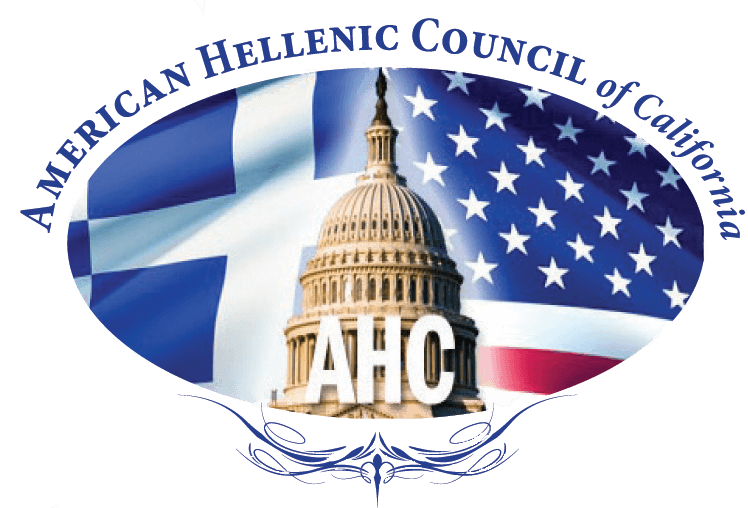The “Macedonia” name dispute between, what today is formally known as The Republic of North Macedonia, and Greece arose in 1991 when the Former Yugoslav Republic of Macedonia (FYROM) seceded and declared its independence as the “Republic of Macedonia.” The region in question consists of a geographical area that extends throughout Albania, Bulgaria, FYROM and northern Greece, with the latter maintaining the largest share in its borders. Culturally, Macedonia refers to the ancient Hellenic Kingdom of Macedonia, a fundamental part of Greek historical and cultural heritage.
FYROM & Prespa Agreement
FYROM, not only through its name, claims this historical culture and heritage, but also has claimed this history through using Greek symbols on its flag, currency and throughout their nation (such as the “Alexander the Great” airport). The Balkan nations throughout the 20th century have had a history of shifting borders, political instability, and violent ethnic conflict. While perhaps seemingly harmless to one not from the region, FYROM’s actions actually imply irredentism. In fact, many school textbooks and official publications in FYROM contain maps that implicate that there still exist many “unliberated” parts of the “Republic of Macedonia.” As such, FYROM implies similar territorial claims to parts of Greece and of Bulgaria as well. In April 1992, Greece’s major political parties refused to accept any naming of the country which included the word “Macedonia”. In 1992 and 1993, the term FYROM was proposed and adopted by various international organizations (IMF, World Bank, International Conference on the Former Yugoslavia), as well as, various European nations such as France, Spain, and the United Kingdom. Both Greece and FYROM objected to this new appellation. In April 1993, the “Republic of Macedonia” entered the UN, with the compromise that the term FYROM would be acknowledged as a provisional reference term and not a name, a place-keeper until better solutions to the issue could be found. However, tensions continued to escalate, resulting in Greece placing a trade embargo on FYROM from February 1994 to October 1995. In September 1995, the two nations formalized relations in an agreement in which FYROM would remove the Vergina Sun (a Greek symbol) from its flag and remove any irredentist clauses from its constitution. Tensions resulting from this issue have led Greece and FYROM to never establish full diplomatic relations. Greece has also blocked FYROM from joining NATO and the European Union. The issue remained stagnant until June 2018, when Greek Prime Minister Alexis Tsipras and FYROM’s Zaev government signed the Prespa Agreement, which obligates FYROM to change its name to “Republic of North Macedonia” and to renounce any claims on Greek history or culture. The agreement also requires that a Macedonian identity and language of the citizens of Northern Macedonia can exist if made explicitly clear that they have nothing to do with Greek history and the language is clearly declared as Slavic. Other names proposed over the years included New Macedonia, Upper Macedonia, Slavo-Macedonia, Nova Makedonija, Macedonia (Skopje), Vardar Republic, Republic of Skopje, Constitutional Republic of Macedonia, Democratic Republic of Macedonia, Independent Republic of Macedonia, New Republic of Macedonia, and Republic of Upper Macedonia amongst others.
Important points within the Prespa Agreement:
- The official, recognized name of the region will now be the “Republic of North Macedonia,” which will be set forth in the constitution and will be used erga omnes, as indicated in the agreement. The short version will be “North Macedonia.”
- The nationality will be Macedonian/Citizen of the Republic of North Macedonia, as it will be written in all travel documents.
- The official language will be the “macedonian language” as it was recognized in the Third United National Conference on the standardization of geographical names carried out in Athens in 1977, described in Article 7 (3) and (4) of this Agreement.
- The terms “Macedonia” and “Macedonian” have the meaning set in Article 7 of the agreement.
- Automobiles’ license plate country codes will be NM and NMK. For all other purposes the country codes will remain MK and MKD, as they were officially set by the International Organization for Standardization.
Article 7 of the agreement states:
- The Parties acknowledge that their respective understanding of the terms “Macedonia” and “Macedonian” refers to a different historical context and cultural heritage.
- When reference is made to the First Party, these terms denote not only the area and people of the northern region of the First Party, but also their attributes, as well as the Hellenic civilization, history, culture and, heritage of that region from antiquity to present day.
- When reference is made to the Second Party, these terms denote its territory, language, people and their attributes, with their own history, culture, and heritage, distinctly different from those referred to under Article 7(2).
- The Second Party notes that its official language, the Macedonian language, is within the group of South Slavic languages. The Parties note that the official language and other attributes of the Second Party are not related to the ancient Hellenic civilization, history, culture and heritage of the northern region of the First Party.
- Nothing in this Agreement is intended to denigrate in any way, or to alter or affect, the usage by the citizens of either Party.


